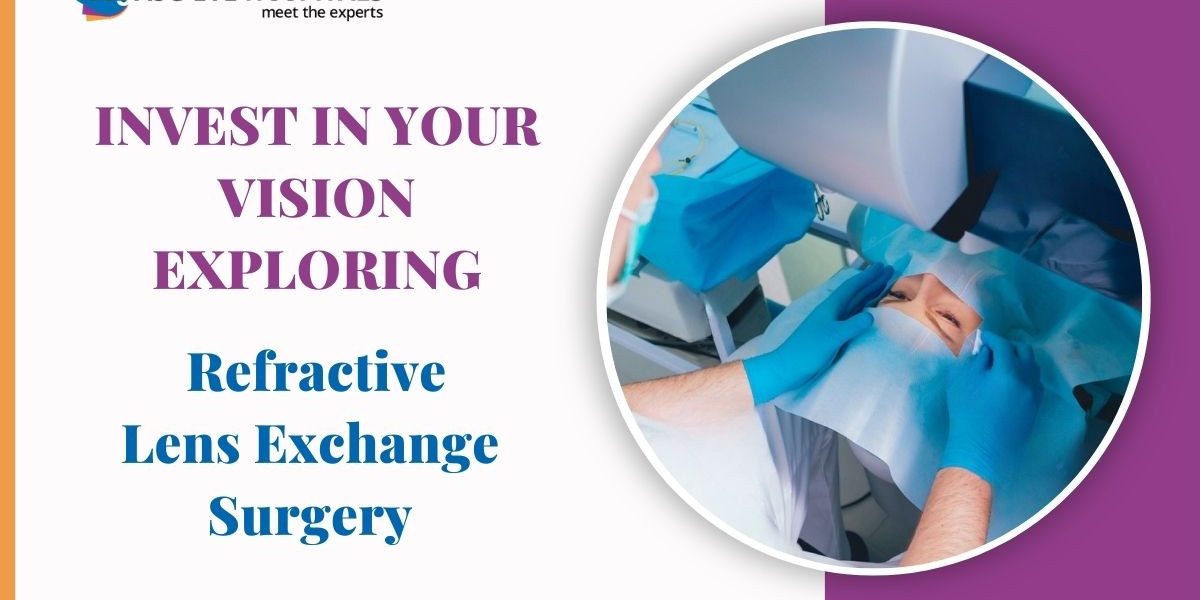Refractive lens exchange surgery is a cutting-edge procedure designed to correct vision issues such as myopia, hyperopia, and presbyopia. This innovative surgery involves replacing the eye's natural lens with an artificial intraocular lens (IOL), offering a permanent solution to vision problems. Consulting with a specialist about refractive lens exchange surgery can provide you with a clear understanding of the benefits and potential outcomes.
What is Refractive Lens Exchange Surgery?
Refractive lens exchange (RLE) surgery is similar to cataract surgery but is performed primarily to reduce the need for glasses or contact lenses in patients without cataracts. The procedure involves removing the eye's natural lens and replacing it with an artificial intraocular lens (IOL) to correct refractive errors.
Benefits of Refractive Lens Exchange Surgery
- Permanent Vision Correction: Unlike LASIK, which reshapes the cornea, RLE offers a permanent solution by replacing the lens.
- Treats Multiple Vision Issues: RLE can correct nearsightedness, farsightedness, and age-related presbyopia.
- Prevents Cataracts: Since the natural lens is replaced, patients will not develop cataracts in the future.
Who is a Candidate for Refractive Lens Exchange Surgery?
RLE is particularly beneficial for individuals over the age of 40 who are experiencing presbyopia or those who have high prescriptions that are unsuitable for LASIK or PRK. Candidates should have healthy eyes without significant underlying conditions such as glaucoma or retinal issues.
Consultation and Evaluation
A comprehensive eye examination by a skilled ophthalmologist is necessary to determine if RLE is the right choice. During the consultation, the surgeon will evaluate the overall health of your eyes, measure the eye's axial length and corneal curvature, and discuss your vision goals.
The Procedure
Refractive lens exchange surgery is typically performed on an outpatient basis and involves the following steps:
- Anesthesia: Local anesthesia is applied to numb the eye.
- Lens Removal: A small incision is made, and the natural lens is carefully removed.
- Lens Implantation: The artificial intraocular lens is inserted in place of the natural lens.
The entire procedure usually takes about 15-30 minutes per eye, and patients can typically return home the same day.
Recovery and Aftercare
Recovery from refractive lens exchange surgery is relatively quick. Most patients experience improved vision within a few days, though full recovery can take a few weeks.
Post-Operative Care
- Follow-Up Appointments: Regular check-ups with your surgeon are essential to monitor healing and ensure optimal results.
- Medications: Prescribed eye drops will help prevent infection and control inflammation.
- Activity Restrictions: Avoid strenuous activities and protect your eyes from dust and water during the initial recovery period.
Choosing the Right Facility
Selecting the top eye hospital in India for your refractive lens exchange surgery ensures you receive high-quality care and advanced treatment options. These hospitals are equipped with state-of-the-art technology and experienced ophthalmologists who specialize in refractive surgeries.
Why Choose the Top Eye Hospital in India?
- Expertise: Highly skilled surgeons with extensive experience in performing RLE.
- Advanced Technology: Access to the latest diagnostic and surgical equipment.
- Comprehensive Care: Comprehensive pre- and post-operative care to ensure the best possible outcomes.
Potential Risks and Complications
As with any surgical procedure, refractive lens exchange surgery carries some risks, including:
- Infection: Though rare, infections can occur and need prompt treatment.
- Lens Dislocation: The artificial lens can sometimes move out of place.
- Glare and Halos: Some patients may experience glare or halos around lights, particularly at night.
Discussing these risks with your surgeon can help you make an informed decision and prepare for a smooth recovery process.
Conclusion
Refractive lens exchange surgery offers a long-lasting solution for individuals seeking to correct their vision and reduce dependence on glasses or contact lenses. By choosing the top eye hospital in India, you ensure access to expert care, advanced technology, and a comprehensive treatment plan tailored to your needs.
If you are considering refractive lens exchange surgery, consult with a qualified ophthalmologist to explore this life-changing option and invest in your vision today.



